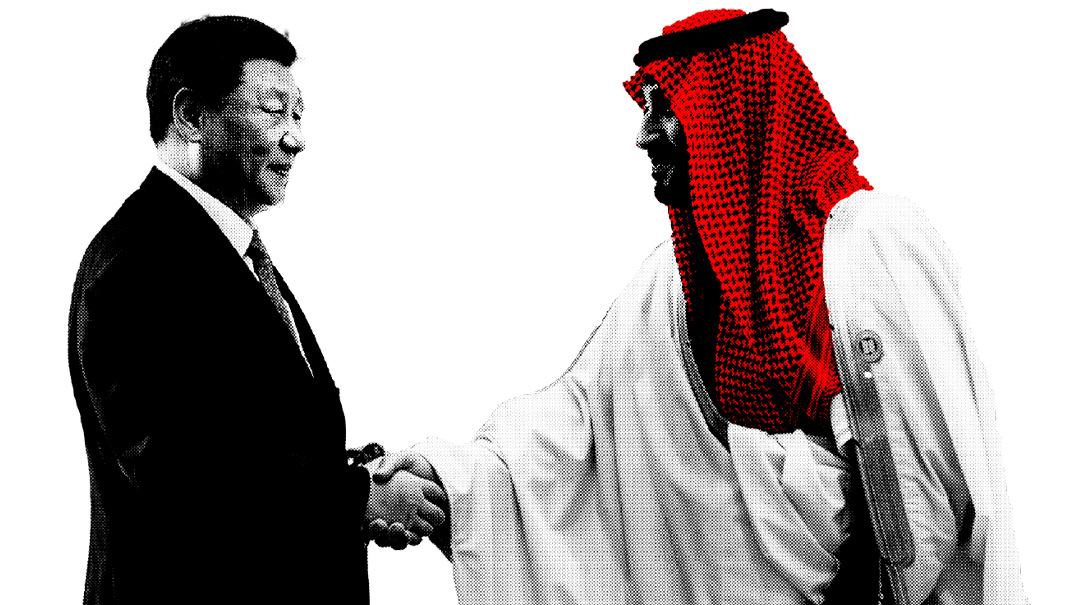MBS Warms Up to China

A stark contrast with last summer’s frosty fist-bump between Crown Prince Mohammed Bin Salman and Biden

Photo: AP Images
The picture says it all.
To describe Chinese president Xi Jinping’s very warm reception in Saudi Arabia last week as a royal welcome would be an understatement. It made for a stark contrast with last summer’s frosty fist-bump between Crown Prince Mohammed Bin Salman and Biden.
Xi’s visit to Riyadh represents a new milestone in the fast-developing ties between China and the Arab world, a region traditionally seen as part of America’s (and to a lesser extent Russia’s) sphere of influence.
The fact that the Chinese president’s visit came during a crisis in the administration’s ties with the kingdom is especially significant. While American dollars and Saudi oil long seemed a perfect match, we got an inkling that things have changed with Saudi Arabia’s refusal to increase its oil output last summer, despite American pressure. Are the Saudis rethinking their loyalties?
“It is a reminder by the Saudis that they have options and will balance their relationship with America, especially when its leaders feel underappreciated and also question whether they can count on the US,” says Dennis Ross, a distinguished fellow at the Washington Institute for Near East.
“This does not mean they think the Chinese can substitute for the US, particularly on security,” Ross noted. “But it does mean that they see economic ties with China, their biggest trading partner, as being very important.”
Ross stressed that the Saudis are not looking to walk away from the United States, but this summit with China is designed to show that they will create a balance in their relationship. “One of the limits, by the way, is what the Chinese do with Iran — the Saudis are trying to show China its stakes in Saudi Arabia are higher than in Iran and they could jeopardize them if they invest too heavily in Iran.”
Dr. Jonathan Schanzer is senior vice president for research at the Foundation for Defense of Democracies in Washington. “The Saudis know full well that America is their best guarantor for security in the region,” he said.
“China will not engage kinetically against Saudi Arabia’s enemies, certainly not the Iranian regime. Still, America has in recent years has indicated a marked lack of interest in protecting Saudi interests,” he noted. “So, the Saudis are, in essence, issuing a wake-up call. Saudi Arabia is sending a message by leveraging Washington’s concern about China and the growing great power competition.
“This is a call for the United States to protect and enforce the system it created,” said Schanzer. “Ties between Saudi Arabia and the United States remain uneasy, however. This meeting could certainly convince both sides to make things better. Then again, it could make things worse.”
(Originally featured in Mishpacha, Issue 940)
Oops! We could not locate your form.







